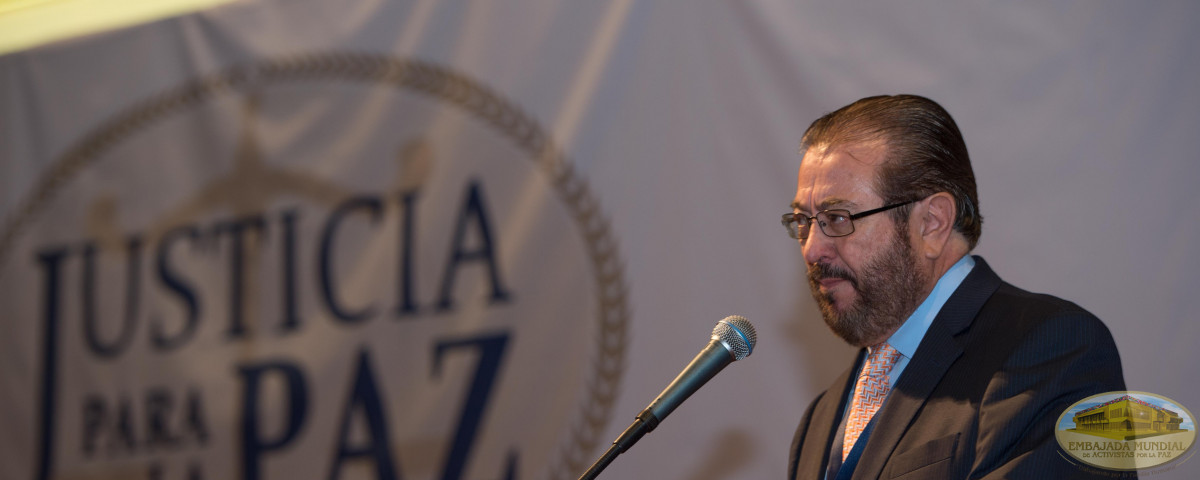
International Judicial Forum “New Proposals for the Prevention and Punishment of the Crime of Genocide,” Argentina – Dr. Julio César Pineda – 2nd Moderation
1st Table
Moderator – Venezuela
Dr. Julio César Pineda
Analyst, college professor and career diplomat
Well, Dr. Rafecas, Holocaust education requires us to work in this sense, and as he said: study it in each of our realities to see which laws, how we can typify it, also as said by Ambassador William Soto, what is the reality in each country.
That is why it is very important right now, also the conversation we will be having, or exposition of Luis Ernesto Vargas Silva. Honorable President of the Constitutional Court in Colombia.
By the way, in the event we were in Bogotá, we went to the Universidad Libre of Bogotá to a forum about Constitutional Right, which he inaugurated. And he began with these words, he said (and it is the damage that can be done by some of our jurists, philosophers and theorists when they assert authoritarianism): there are two conceptions of Law; first, those who believed in true Law and followed, precisely, the norm of Kelsen, in Law as an expression of justice; and that other dangerous vision, quoted Carl Schmitt, who was the ideologue of Hitler, which precisely differentiated the people -as Professor Rafecas said- between good and bad, between friends and enemies.
And that is what Dr. Rafecas said to the Jews: they were not people. It is what they call Criminal Law of the enemy. You cannot apply Criminal Law, it is given no consideration, and it is a danger even in our continent, because you can discriminate against a group because they simply do not think like they are in command. And that Carl Schmitt philosophy is dangerous when it is recognized that way.
Therefore what Dr. Vargas said in another university setting is interesting: one has to adapt to Law and justice. It is also interesting, and that is the reason for his important contribution, to start seeing in Latin America and in our countries what has been done and what can be done.
He is going to talk to us about the crime of genocide in the Colombian jurisprudence, but also the progress and challenges in Colombia; and it is being said by the highest authority, today the expression of law in that country.
With you, then, Colombia’s representative: Luis Ernesto Vargas Silva. You have the floor.